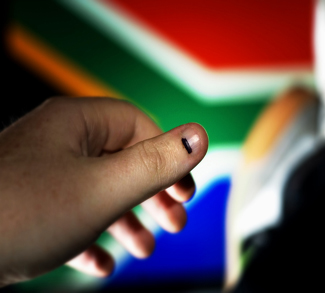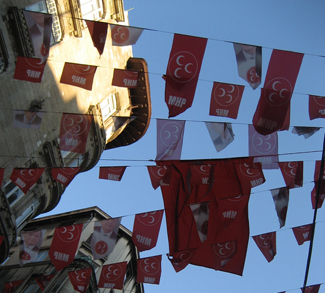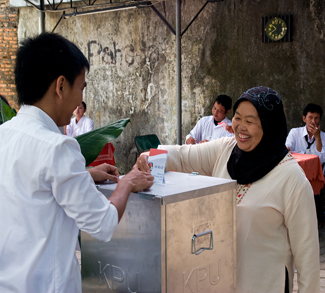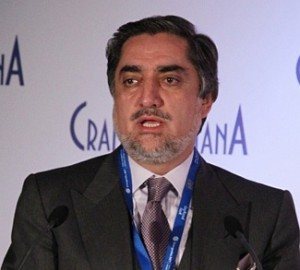Introduction
With a general election set for May 7, 2014 will be uncharted waters for South Africa. These polls will be the first since the death of Nelson Mandela in December last year, and they also represent the first time that the post-Apartheid generation will be eligible to vote.
Economic issues will feature prominently in the run-up to election day. A staggering 24% of the population is unemployed, public services are languishing, and corruption is rife. And though 2014 alone is not likely to bring a seismic shift in South African politics, it will surely herald some shifting electoral winds.
Parties and Politicians
African National Congress (ANC)
South Africa’s ruling party since 1994, the ANC is no longer the party of Madiba. Though expected to win the 2014 elections with another parliamentary majority, the ANC is finding itself besieged on all fronts.
The party, beset by ceaseless in-fighting, has failed to deliver the growth and employment that would lift millions of black South Africans out of poverty. Party leader and current president Jacob Zuma has been implicated in numerous scandals, including the alleged siphoning of $21 million of public funds to upgrade the presidential residence. Basic services have also suffered considerably over the past five years of the Zuma presidency, such that they have now become a major concern for many South Africans.
On top of this, the party has the “born-frees” to worry about – the post-apartheid generation that is less willing than their elders to view the ANC as South Africa’s natural governing party. ANC opinion polling – conducted by pollster Stanley Greenberg – shows that it is most vulnerable to voters under 40.
Ever sensitive to criticism, the party has gone to great pains to remind South Africans of its various achievements over 20 years of rule. These include building millions of homes, a successful fight against HIV/AIDS infection rates, and increased access to education.
In spite of these problems, the ANC is expected to win handily in upcoming elections, albeit with a reduced mandate. President Zuma’s goal of garnering 75% of the vote, which comes with the tantalizing ability to dominate parliament and freely amend the constitution, seems unlikely. Analysts predict that the ANC’s vote share could drop to 53%, down from 65% in 2009, and the party risks losing electoral control of the economic stronghold of Gauteng.
Democratic Alliance (DA)
Centered in the province of Western Cape, the centre-left Democratic Alliance has long been the only viable alternative to the ANC. In spite of this, the party holds only 18% support. Though helmed by anti-Apartheid veteran Helen Zille, DA is widely seen as “too white” by many South Africans. This perception drove the DA to seek a merger with Agang in late January, with prominent anti-Apartheid activist Dr. Mamphela Ramphele running as the party’s candidate. Less than a week later however, Ramphele reneged on the agreement, dealing a significant blow to the DA’s rebranding efforts.
Congress of the People (COPE)
Formed in 2009 as a breakaway faction of the ANC, COPE garnered 7.4% of the vote in the 2009 general elections. The party has been ravaged by infighting as Mosiuoa Lekota’s leadership is disputed by former Gauteng Premier Mbhazima Shilowa. COPE was able to capture the third-largest share of votes in the 2009 election – a feat it is unlikely to repeat this year.
Inkatha Freedom Party (IFP)
Led by long-time leader Mangosuthu Buthelezi, the IFP’s primary support base is Zulu-speaking South Africans. The IFP has seen its support decline from its early 1990s heyday contesting the ANC. It has kept a relatively low profile during this electoral season, though the IFP recently struck a pact with the EFF to protect one another during campaigning.
Economic Freedom Fighters (EFF)
A newly-formed party launched by former ANC youth leader Julius Malema, the EFF espouses a left-wing populist platform, billing itself as a “radical, leftist, anti-capitalist and anti-imperialist” party. Some of the more extremist policies championed by the EFF include the expropriation of South African farmland from white farmers and the nationalization of mines and banks. The EFF is rumoured to be financially backed by Zimbabwe’s ZANU-PF party, upon which many of its policies are modelled.
Malema himself has proven a controversial figure. During his stint as ANC youth leader, he built a reputation for bombastic rhetoric against the country’s white minority, excessive personal spending, and the odd corruption charge. He was expelled from the ANC in 2012 for sowing division within the party. Though his EFF claims to champion the interests of the poor, Malema himself has been charged with fraud, corruption, and laundering millions of dollars.
Agang South Africa
A centre-left party founded by anti-Apartheid icon Dr. Mamphela Ramphele. Her impressive credentials as a physician, co-founder of the Black Consciousness Movement, and managing director at the World Bank led to much fanfare following the party’s founding in February 2013. However, Agang SA has so far failed to connect with voters and capitalize on widespread discontent towards the ANC. Recent Ipsos polling shows Agang support hovering around 1%. Agang SA and the Democratic Alliance had been set to merge with Ramphele running as the joint candidate, but the move was criticized as the DA simply “renting a black face” for electoral gains. It has been reported that while Agang’s financial backers had supported the deal, the party’s network of followers did not. The fallout from the aborted merger, however, will likely prove more detrimental to Agang SA’s credibility than had it actually gone through with the deal.
Three Key Issues to Watch
Who will the “born-free” generation gravitate towards?
The term born-free refers to the generation of South Africans born after the end of apartheid, or those too young to remember the struggle for multi-racial democracy. 2014 will mark the first elections that this demographic – which makes up some 40% of South Africa’s population – will be eligible to vote. Critics have charged that the born-frees are too apathetic towards the country’s political process, and that the post-Apartheid generation has no appreciation for the sacrifices made by their parents and grandparents. While in some ways true, especially with regards to how younger generations view established political parties, polls also show that born-frees are more willing to socialize with other ethnic groups – a positive sign pointing to the realization of the 1994 dream of a “rainbow nation.” Results from South Africa’s Independent Electoral Commission also show a record number of new voter registrations under the age of 30.
Jacob Zuma and the ANC see the born-frees as a time-bomb. The unemployment rate for 15-24 year-olds stands at an immense 51% (compared with 24% for South Africa overall). Though born-frees are typically more optimistic than other age groups, this is likely to sour as they enter a stagnating workforce with limited job prospects. Born-frees are less willing to stake their loyalty behind the ANC, as they have no memory of the Congress acting as the vanguard of the anti-Apartheid struggle.
Interestingly, none of South Africa’s political parties have utilized the born-frees in their campaign rhetoric.
Erosion of ANC support and the rise of the EFF
The ANC is heading into tough waters. The party’s support has been steadily dwindling over its twenty years in power, a trend that opposition parties are eager to seize upon.
Though the DA is South Africa’s second-largest party, this election’s defining battle may be between the ANC and the upstart EEF. The DA continues to struggle with its image, opening the door to angry contenders like the EFF. Malema’s brand of left-wing populism resonates with many in the ANC’s traditional support base who are increasingly fed up with the scandal-plagued government. Even more worrying for the ANC is the EFF’s appeal among young, disenfranchised South Africans. A large number of the born-frees view the ANC as having failed their generation and Malema’s bombastic promises could well resonate with this demographic.
The ANC may not lose power, but it will increasingly see key voting blocs being tapped into by new parties. As one Nomura International analyst summarizes, “Demographics are nibbling away at the ‘liberation debt’ owed to the ANC.” 2014 may well mark the beginning of the ANC’s slow electoral decline.
Discontent in the platinum belt
The mining industry has long been the driving force behind the South African economy. With a 77% share of global production, South Africa is also the world’s largest platinum producer. Simmering tensions in the country’s platinum belt – located in the northwest – have already boiled over several times, most notably in August 2012 with the shooting deaths of 44 striking miners. Miners in the Rustenburg platinum mines have been on strike since the end of January, prompting viability concerns among Anglo American and other major mining corporations. How this issue is resolved, or not resolved, will loom large over various party campaigns leading up to the election.
Economic Impact
Though the ANC is set for victory, South Africa’s economic woes will continue. The ANC has so far shown itself incapable of managing the economy – GDP expanded by less than 2% in 2013, and there is little optimism that things will radically change under a renewed ANC mandate.
The winners will also have to contend with the ongoing issues affecting South Africa’s mining industry. Platinum exports account for 6% of South Africa’s GDP and 60% of the country’s exports, meaning long-term instability in the sector threatens to be particularly painful. Wide-reaching reforms targeting the country’s mining industry will also have to deal with the phenomenon of illegal gold mining operations, where accidents and fatalities are rife.
The possibility of the EFF raking in a substantial share of votes could also have a potential negative impact on the economy, especially if it garners substantial support among the born-frees. The EFF’s extreme platform of mass nationalization and land confiscation could lead to foreign investors thinking twice about conducting business in South Africa, and as such, EFF support levels can be taken as a crude barometer for anti-investment populist sentiment.




